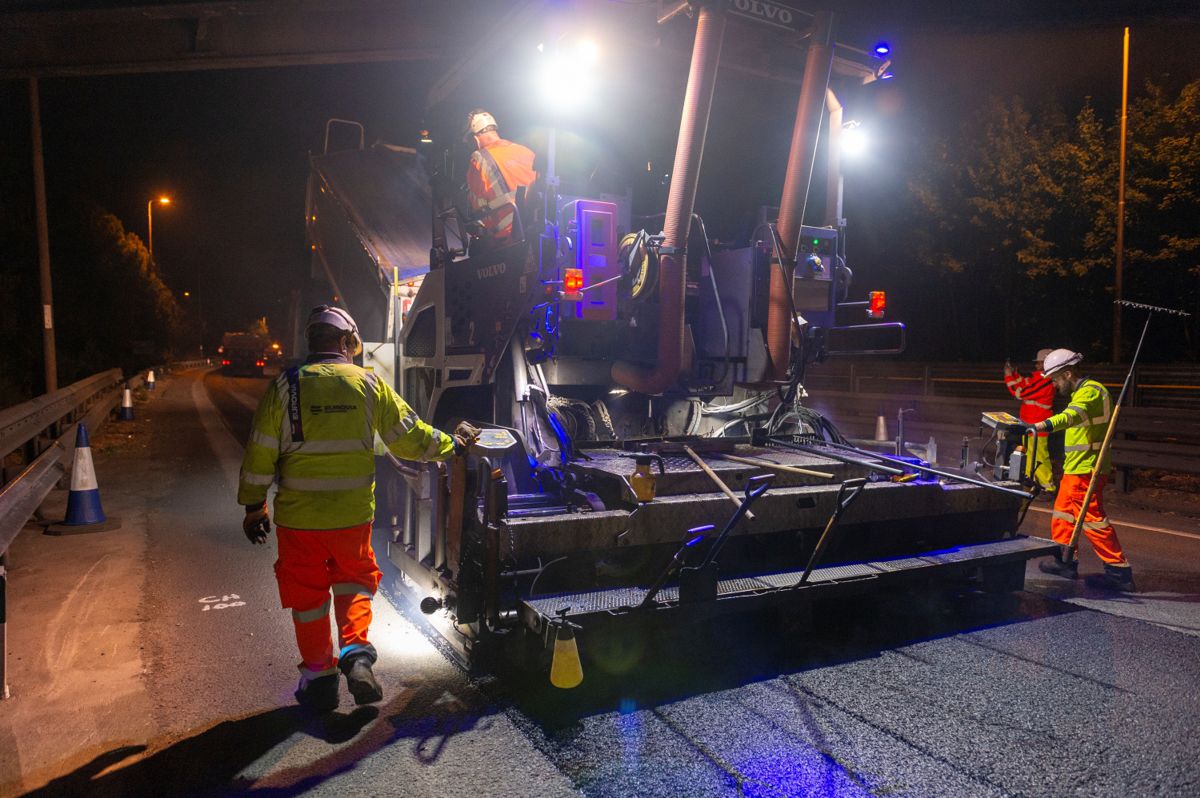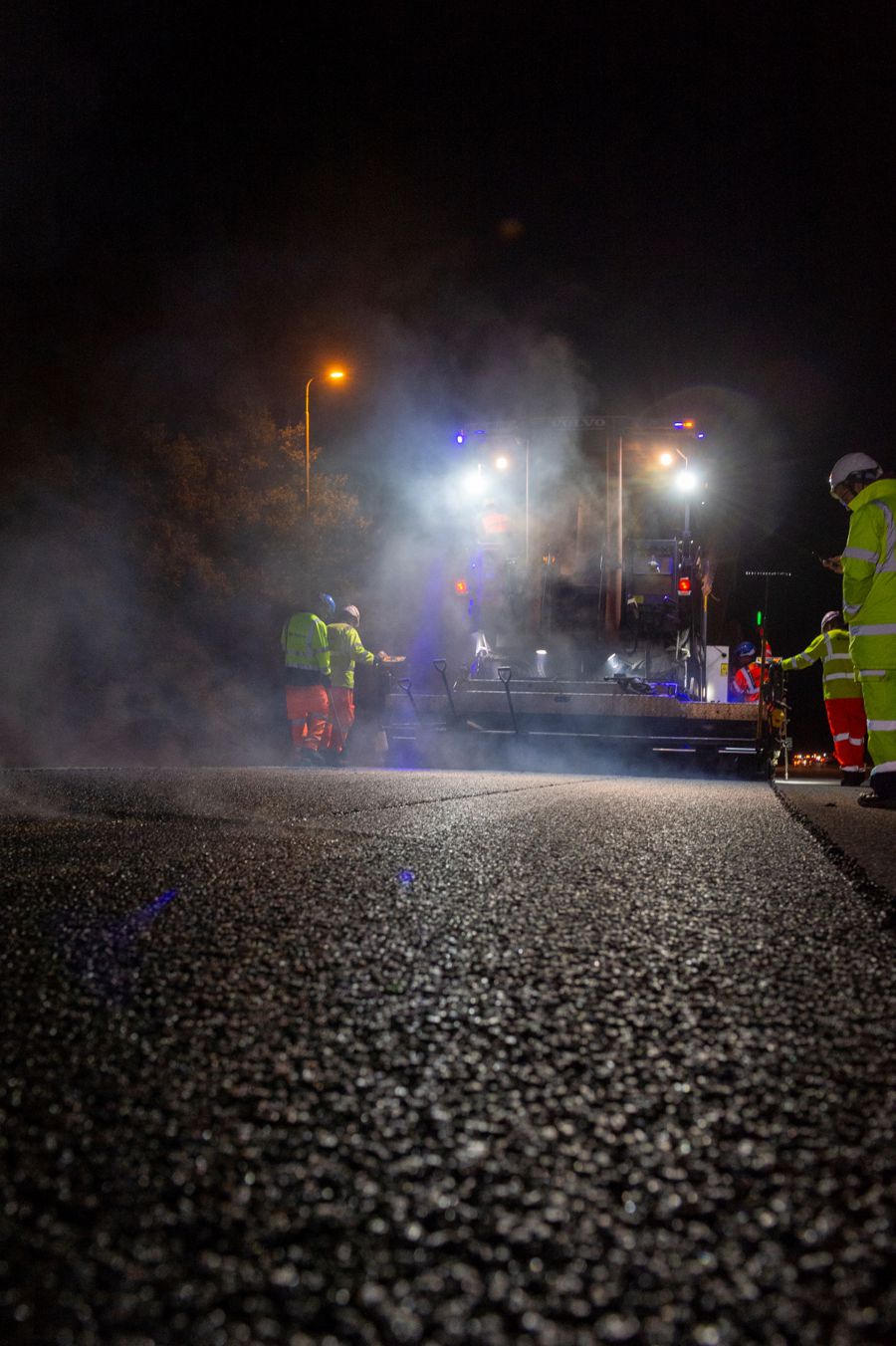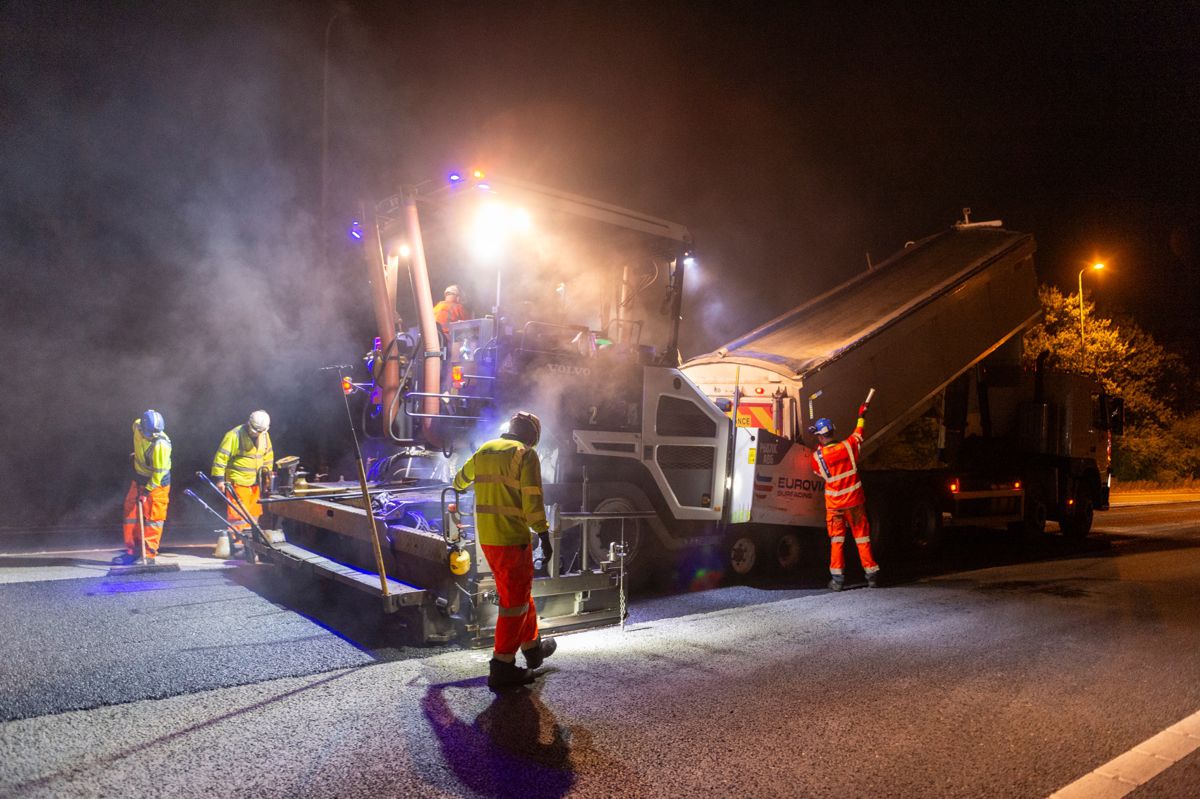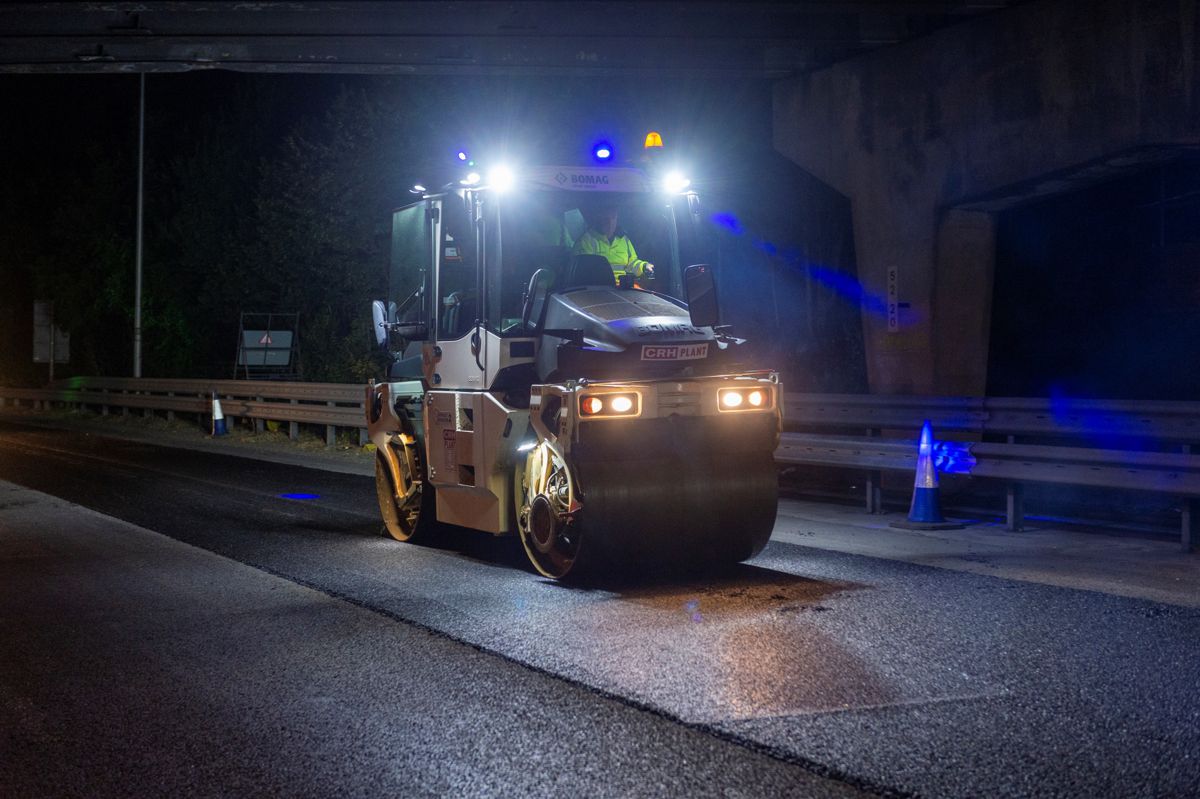Revolutionising UK Roads with Graphene-Enhanced Asphalt Trials
National Highways has embarked on an ambitious mission to reshape the future of road construction, trialling an innovative graphene-enhanced asphalt aimed at extending pavement longevity while reducing carbon emissions.
This project, now underway on a key stretch of the A12, signals a potentially game-changing development in infrastructure sustainability.
The Science Behind Graphene-Enhanced Asphalt
Graphene, an extraordinary material 100 to 300 times stronger than steel, is being used in a pioneering road surfacing trial. National Highways has laid a kilometre stretch of the A12 between Hatfield Peverel and Witham with an asphalt mix that incorporates a graphene-enhanced polymeric additive known as Gipave. This material, developed by Iterchimica, adds strength to the bitumen film that binds the aggregates in asphalt, offering greater durability, increased resistance to rutting, and improved stiffness. What sets this trial apart is that the asphalt contains 40% reclaimed materials— the highest percentage of recycled asphalt used in the UK to date.
This graphene-enhanced mix isn’t just experimental—it’s part of a larger, structured programme under the second phase of National Highways’ Strategic Pavement Trial Scheme (SPaTS 2). This scheme tests various emerging low-carbon materials to determine the optimal mix of performance and sustainability. By trialling both hot and warm mix asphalt technologies, the project is exploring ways to reduce the carbon footprint of road maintenance while improving longevity.

Extending Road Lifespan and Enhancing Sustainability
For years, engineers have searched for ways to make roads more durable without sacrificing sustainability. The trial on the A12 might just hold the key. Gipave, the graphene-based supermodifier, has already shown its potential in earlier trials and international applications, including at major transport hubs like Edinburgh and Rome Fiumicino Airport, the F1 Imola circuit, and the San Giorgio Bridge in Italy. Its performance is continuously being monitored across these projects, and the results are promising: longer pavement life, fewer repairs, and fewer carbon emissions in the long run.
In the case of the A12, the trial is particularly significant because it utilises a high proportion of recycled materials while aiming to deliver enhanced durability. Michael Wright, Technical Director at AtkinsRéalis, explains: “The trial of graphene-enhanced asphalt marks a step towards more advanced road construction in the UK and builds on our work with National Highways to trial emerging technologies. We will closely analyse the performance of this innovative product, which could lead to significant improvements in road durability and reduce environmental impact through a new, sustainable circular economy.”
This isn’t just about building better roads— it’s about creating an infrastructure that supports the UK’s net zero ambitions. Umesh Parajuli, Project Sponsor and Senior Pavement Advisor at National Highways, highlights the significance: “This trial of graphene-enhanced asphalt supports our 2040 net zero target for construction and maintenance and could provide significant whole-life benefits, improving the service life of both local and national networks.”

Industry Collaboration: Driving Innovation
The graphene-enhanced asphalt trial on the A12 is more than a simple engineering experiment— it’s a collaborative effort. Industry leaders from Eurovia UK, Jean Lefebvre (UK), AtkinsRéalis, and Directa Plus have joined forces with National Highways to push this technology from the lab to real-world applications. The one-kilometre stretch of road on the A12 represents just a portion of a much larger vision to create smarter, more resilient roads across the UK and beyond.
Giulio Cesareo, CEO of Directa Plus, highlights the broader impact of this collaboration: “The continued use of Gipave demonstrates the growing recognition of its ability to improve road durability and sustainability, aligning with our mission to deliver cutting-edge, eco-friendly solutions to the infrastructure sector.”
The support from leading universities like the University of Nottingham, alongside Eurovia UK’s production and mix design expertise, strengthens the project’s credibility. This collaboration also ensures that data collected from the trial will be rigorously analysed to inform future developments. Jonathan Core, Technical Director at Jean Lefebvre (UK), explains: “Collaboration and close coordination with industry experts, such as Iterchimica and AtkinsRéalis, is an essential component in achieving our objectives.”
International Success and Future Prospects
Gipave isn’t just making waves in the UK. The material has been adopted internationally with resounding success. The new San Giorgio bridge in Genoa, the runways of Treviso Airport, and motorways in northern Italy, such as the A4 Turin-Milan and A4 Brescia-Padua, have all benefited from Gipave-enhanced surfacing. These examples demonstrate the material’s versatility and its ability to withstand heavy use in varied climates.
As Europe faces the dual challenges of ageing infrastructure and increasing environmental pressures, the success of this trial could set a precedent for future road construction projects across the continent. There is a growing appetite for more sustainable building materials, and this graphene-enhanced asphalt might be the answer to the industry’s call for a more circular economy.
Lorenzo Sangalli, Gipave Product Manager at Iterchimica, expresses optimism for the future: “The combination of Gipave with high percentages of recycled asphalt has already demonstrated higher performances in similar contexts, extending the service life of asphalt pavements and resulting in greater benefits in terms of sustainability and circular economy.”

Towards a Greener Road Network
National Highways’ dedication to modernising and maintaining the UK’s strategic road network is driving the industry forward. The A12 graphene asphalt trial is a major step towards transforming road construction practices with an emphasis on sustainability, efficiency, and long-term benefits.
As the data from this trial is collected and analysed, the findings will likely influence future projects, both in the UK and internationally. If successful, the graphene-enhanced asphalt could become the gold standard for road surfaces, delivering not only more durable roads but also significantly reducing the carbon footprint of infrastructure projects.
National Highways’ commitment to innovation and sustainability is mirrored by its industry partners. As Michael Wright from AtkinsRéalis stated: “We’re excited to continue working with National Highways to lead the way in sustainable infrastructure solutions. These trials are critical for understanding how we can build better, greener roads that last longer and require less maintenance.”

The Future is Paved with Innovation
The graphene-enhanced asphalt trial on the A12 could represent the future of road construction. By embracing cutting-edge materials and technologies, National Highways and its partners are laying the groundwork for a greener, more sustainable future. With increasing pressure to meet net zero targets and to find more durable materials for road infrastructure, the potential of Gipave and similar technologies cannot be understated.
The success of this trial may pave the way for a new era in road construction— one where sustainability, durability, and innovation converge. If these graphene-enhanced materials deliver on their promise, the road to a more sustainable future might already be under our feet.




























